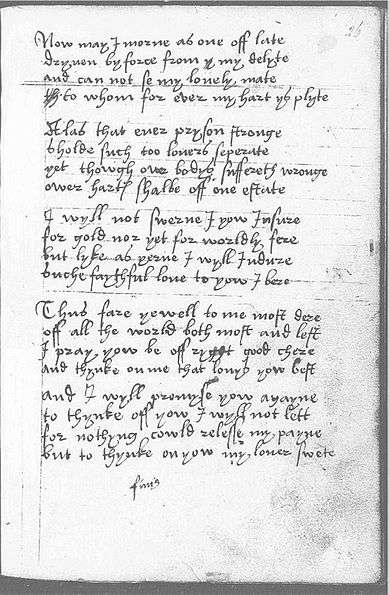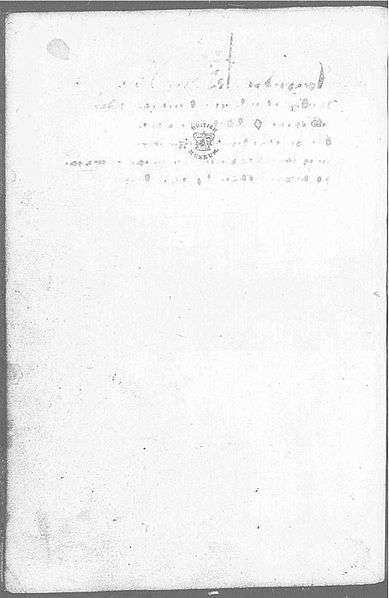|
Introduction | Contributors | Textual Introduction |
| ←It was my choyse It Was my chaunce | Wyth sorowful syghes and wondes smart→ |
 The Devonshire Manuscript facsimile 26r |
 The Devonshire Manuscript facsimile 25v |
f. [25v]
f. [26r]
1 Now may I morne as one off late
2 Dryuen by force from y my delyte
3 and can not se my louely mate
4 th to whom for ever my hart ys plyte
5 Alas that euer pryson stronge
6 sholde such too louers seperate
7 yet thowgh ower bodys suffereth wronge
8 ower harts shalbe off one estate
9 I wyll not swerue I yow Insure
10 for gold nor yet for worldly fere
11 but lyke as yerne I wyll Indure
12 suche faythful loue to yow I bere
13 Thus fare ye well to me most dere
14 off all the world both most and lest
15 I pray yow be off ryght good chere
16 and thynke on me that louys yow best
17 and I wyll promyse yow agayne
18 to thynke off yow I wyll not lett1
19 for nothyng cowld relesse my payne
20 but to thynke on yow my louer swete
finis
Notes & Glosses
1. This use of "let" is similar to that in Henry VIII's "Pastyme with good company."
Commentary
Attributed to Lord Thomas Howard,[1] the poem was entered by TH2. Typical of courtly love literature, the speaker emphasizes the pain that occurs when lovers are separated from each other.